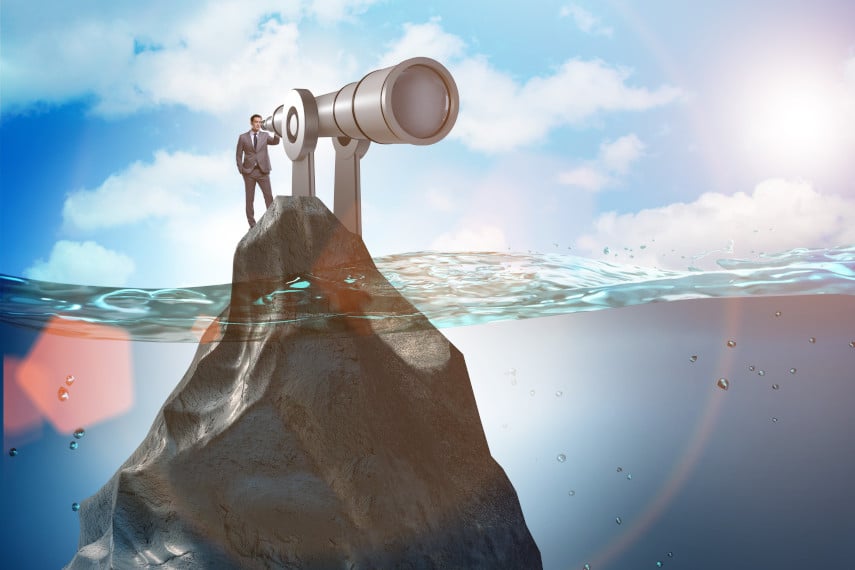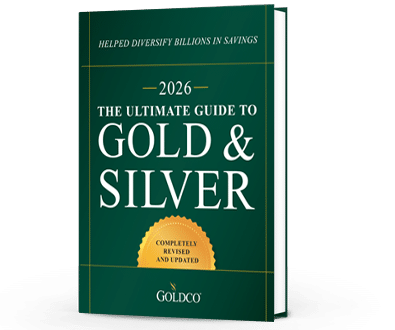3 Things That You Should Know About Inflation
Only a few short years ago, the United States experienced the highest inflation rates in over 40 years as inflation rates peaked at over 9% That was a wake up call for many Americans who had been...
Economy

More and more Americans today expect the economy to fall into recession this year. A recession wouldn’t be surprising, as the economy has faced headwinds for a while and has been on the cusp of recession for a year or more. Many Americans have already prepared themselves for the eventuality of recession, but many more may not have.
What everyone fears the most is that the coming recession may turn out to be a 2008-like financial crisis, or the beginning of a 1970s-style stagflation. No one wants to see that happen, but we’re just spectators watching what transpires.
That doesn’t mean you’re powerless, however, as there are still steps we can take to help safeguard your savings. But if you didn’t already think recession is on the way, here are four reasons recession is on the horizon.
The weakness in the banking system has taken center stage in recent weeks, and has led to a seismic shift in investor and depositor behavior. Bank deposits have been drawn down and moved into money markets, Treasury bonds, cryptocurrencies, and precious metals.
Americans are probably more spooked today than they have been since 2008, with the possible exception of during the COVID era. We haven’t seen bank failures like this since the financial crisis, and the prospect of another major crisis isn’t sitting well with many people.
Just imagine if your bank were to fail, or if enough banks failed at once that federal regulators decided to order a nationwide bank holiday. The effects would be pretty dramatic, and not at all positive.
We’ll have to wait and see how this banking system weakness continues to materialize, but you can’t help but think that this could be 2008 all over again. The banking system weakness could be the Lehman moment that ends up driving the US economy over the edge.
Inflation has been a problem for well over a year, and it shows no signs of leaving us. With year on year inflation still at 6%, inflation has undeniably impacted consumer and business behavior.
If inflation remains elevated, it could continue to drag on the economy. In a worst case scenario we could even experience another stagflationary period, similar to the stagflation of the 1970s.
Everyone hopes for a quick recovery after recession. But if inflation can’t be tackled, it could prolong a recession, make recovery more difficult, and possibly lead to prolonged economic stagnation. If the economy ends up in stagflation, it could be very difficult to get out of it.
The Federal Reserve’s fight against inflation has required boosting interest rates to the highest levels they’ve been in over a decade. Interest rates aren’t anywhere near the peaks seen during the early 1980s fight against inflation, but the Fed may have to keep interest rates higher for longer if inflation doesn’t come down.
Unfortunately, in an economy that has experienced ultra-low interest rates for nearly 15 years, numerous industries have come to rely on those low interest rates not only to support their own business operations, but also to spur consumer demand for their products. Now that interest rates are rising, the cost of doing business is getting more expensive, and customers are also finding it harder to finance purchases.
This will impact many industries, and is an unfortunate side effect of the Fed’s inflation fight. These higher interest rates will impact business activity for quite some time, and the longer they remain high, the longer economic activity will remain suppressed.
This one may seem a little circular, but here’s how it goes. When people begin to expect a recession, they start taking actions to prepare themselves against recession.
Individuals and households start to cut back on spending. Businesses begin to cut back on investment and expansion, or they start to lay off workers.
The more this happens throughout the economy, the greater the effects become on the entire economy. In a way the recession becomes almost self-fulfilling, as enough businesses and individuals change their behavior and pull back on spending or lay off workers that the spending crunch of recessions occurs as a result of people trying to protect themselves against recession.
Of course, that behavior is understandable. No one wants to be the last one standing when the music stops playing. If you go one blithely assuming that everything is going to be just fine, you may get a rude awakening when the recession finally hits.
Many Americans found that out the hard way in 2008, as the financial crisis wiped away trillions of dollars of wealth that American investors had worked for decades to build up. That’s why more and more people today are taking steps to protect themselves against the coming recession.
One way they’re doing that is by buying gold and silver. Gold and silver have served as safe haven assets for centuries, and they’re among the first assets people look for during times of uncertainty and turmoil. Just witness how high gold prices zoomed as the banking system experienced its trouble.
With so much wealth stored up in retirement accounts such as 401(k)s and IRAs, many Americans are wondering how they can protect the assets in those accounts. Through a gold IRA or silver IRA, you can protect your retirement assets with gold and silver.
Gold and silver IRAs are types of precious metals IRAs that own gold and silver coins or bars. They can be funded with a tax-free transfer or rollover of existing retirement assets such as those from a 401(k), 403(b), TSP, IRA, or similar account. They’re subject to all the same rules and regulations as any other IRA account, including those relating to distributions. And when you decide to take a distribution from your gold IRA or silver IRA, you can take that distribution in physical metals or in cash.
If you’re worried about the next recession and looking for a method to protect your hard-earned savings, call the experts at Goldco today. We’ve helped thousands of satisfied customers protect their money with gold and silver. Let us help you too.

